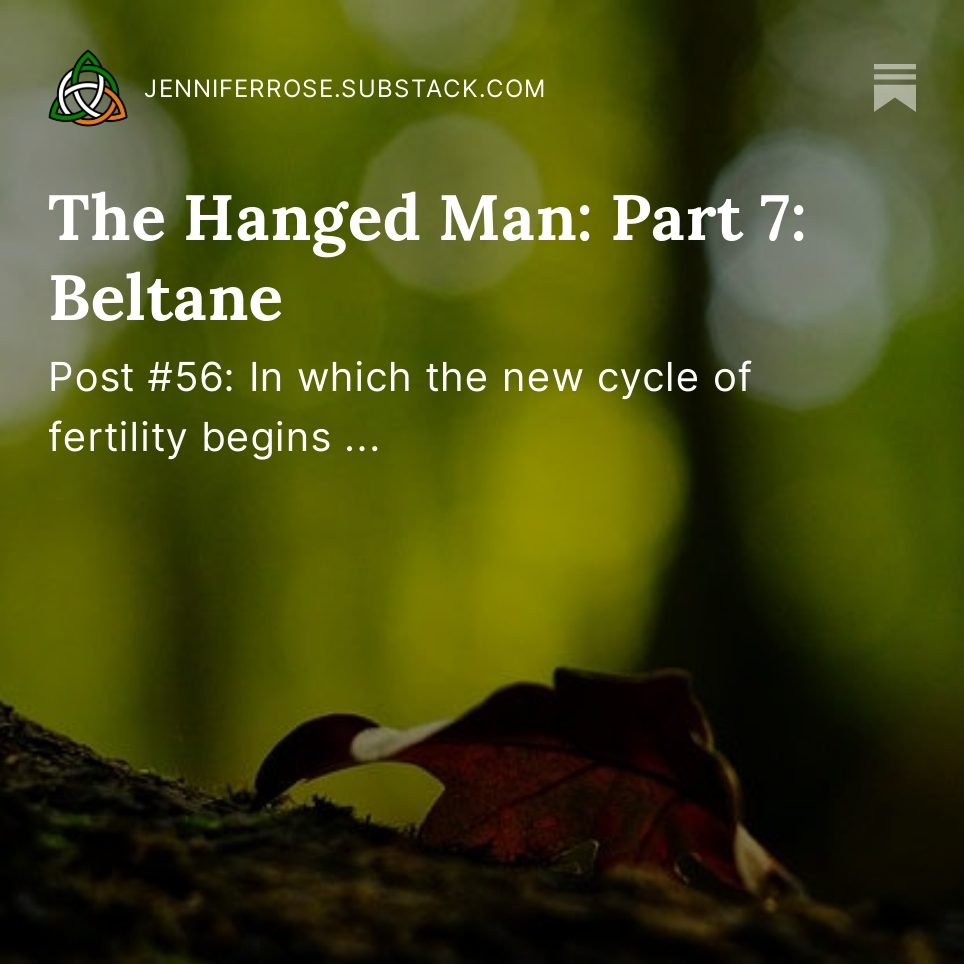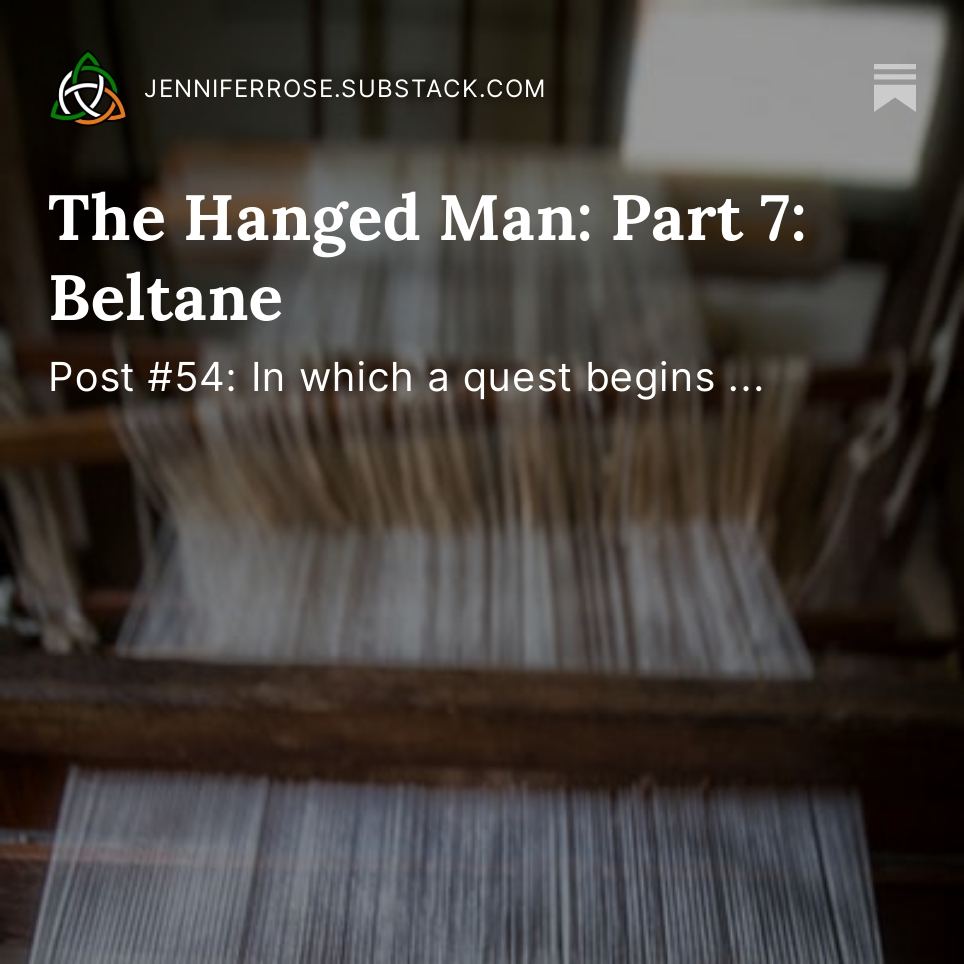by Jenny Rose | Mar 11, 2023 | Emotional Intelligence, Feelings
In January, my brother and I traveled to Colorado to transition our mother into memory care.
As some of you know and many can imagine, a journey into dementia is an unsettling one on good days, by which I mean relatively calm days. On bad days, days of panic and confusion, days of anger and restlessness, it’s heartbreaking.
One of the greatest challenges for me is the chaos of my jostling feelings, all mobbed together and struggling for attention. I can’t feel everything at once, and I can’t focus on one thing at a time. One minute I’m entirely relieved because I know she’s in a safe, protected environment being well cared for, which has not been the case for the last ten years. Knowing she was living alone, driving, walking her dogs, and slowly losing her ability to function and manage her own life and I could do nothing about it took a daily toll.

Photo by Cristian Newman on Unsplash
The next minute empathy and compassion overwhelm me and I’m reminding myself to maintain boundaries. She is not me. I am not her. My attention needs to be on taking care of my own feelings. If I could have effectively helped and supported her, I would have started doing it when I was five years old. I never found a way because there is no way.
Then I’m angry. Angry because I tried to avoid this particular outcome. Angry because she wouldn’t help herself when she had the ability to. Angry because I’m still in the position of parenting and taking care of my parent, which has always been the case. Angry about her suffering and confusion, and mine.
At the end of every conversation we have on the phone, I tell her I love her. It’s true. I have always loved her, but was not allowed to say so. She would ignore such a statement, or dispute it. She says it back to me now. It always makes me a little bit mad. It was a thing she would not say outright before. She’d sign herself “Love, Mom,” but she wouldn’t say it. She’s not a person who offers or accepts any kind of touch. Does she really love me, or is she merely participating in the familiar ritual of the exchange? Did she feel it all along but couldn’t say it?
Even before her dementia onset, Mom wouldn’t have answered these questions. I will never know.
I’m also sad. It’s not a sobbing, tearing grief, but a gentle, diffuse one, like watching a teabag steep in hot water and gradually turn it into tea. I don’t feel it all the time. There’s resignation in it, and acceptance, and surrender.
Mom is receiving palliative care under a local hospice organization. They recommended a book to me, titled The 36-Hour Day, by Mace and Rabins. I bought a copy. It was hard to read because it stirred up uncomfortable feelings, but it’s also a goldmine of information, including the latest research and standards for dementia care. It’s enormously validating. I read about specific behaviors and the stages of dementia and realize I have been struggling with Mom’s gradual disintegration for years. Nobody else saw it, so I was alone with my fears and concerns, but I knew she was slipping and I suspected this time was coming.
What I was most hoping for from the book was a script for dealing with difficult questions and conversations. I have some professional experience with dementia and am comfortable with refraining from using logic or trying to bring anyone back to reality. Mom has always believed entirely in her narratives, which often were distorted, paranoid, and inaccurate, so I have a long and painful history of managing her stories and beliefs. However, now the briefest conversation is fraught with pitfalls I don’t know how to respond to or address. I spend a lot of time on pause, frantically trying to figure out the best way to engage with her.

Photo by Quino Al on Unsplash
The book didn’t give me a script, per se. What it gave me was a simple strategy for everything: reflect and validate feelings. Not the stories (thoughts), but the feelings. Emotional intelligence strikes again.
This was good news for me because I’m highly emotionally intelligent, even in this difficult personal context. I know how to recognize, name, and manage feelings. On the other hand, it seems like so little to offer. It’s hard to provide comfort in the context of dementia. Language feels pointless. Nonverbal communication is useless over a long distance and, in this case, in person. Mom has flinched away from me too many times for me to even think about touching her. On the phone, all I have is language. Following my impulse to reassure, to explain, to provide some kind of structure, only makes things worse for both of us. I measure my effectiveness by the level of her distress, which is eerily like measuring my effectiveness by the degree to which I can please her. Even that may not be accurate. Mom’s distress has always been extreme in the face of boundaries, limitations, the word “no,” and any questioning of her particular narratives and beliefs. It’s a personality trait having nothing to do with me personally. The mere fact of her feeling confined (which is accurate) may be the root of her distress rather than anything I’m saying or doing. Or not saying or not doing.
It occurs to me feelings live inside the just-born infant. Maybe before that. Certainly, we experience feelings long before we master language. I’m realizing intellect, logic, language, can all fall away at the end of life, too, but the feelings remain. I assume our need to be heard and validated remains.
Conversation with Mom is like wandering blind through a meadow filled with rabbit holes. Dementia is at once simple and extremely complicated. I never know how she will be or what she will say next. Sometimes she sounds down and depressed. Sometimes cheerful. Sometimes calm. Once she even told me she was “content,” a word I’ve never associated with her before. Sometimes she’s anxious, sometimes angry, sometimes groggy and hardly responsive.
When we talk, I work to set aside (temporarily) my own feelings, thoughts, memories, expectations, and predictions. I ask her how she is and listen to her response, looking for the feelings. When she tells me she needs to leave there because “everybody steals,” I sidestep the stealing accusations and acknowledge it must be an uncomfortable and discouraging way to live, and I can understand why she doesn’t like it. She perseverates on this theme off and on, and I enlarge on how difficult the feeling of losing things is, how unsettling to not be able to find our possessions. After all, she’s lost her whole previous life. Her feeling of loss, of things missing, is based in reality. On the other hand, her paranoia and fear of people (including me) stealing money from her was in place long before her dementia. I was never able to persuade her they did not reflect reality. I certainly can’t do it now.
Reflecting and validating her feelings back to her feels inadequate. It even feels condescending. But there’s nothing else I can do, nothing else to say. Witnessing her feelings is all I have left.
And, after all, maybe that’s a lot. We’re not very skilled with feelings in this culture. It’s not easy to find someone who will just listen without trying to fix or solve. Perhaps great healing lies in being heard with nothing added. I hope so.
Another constant theme is one of buying a car and going shopping when we visit. When I ask her what she needs, she can’t tell me. She needs “things.” When I ask her if she’s started a list, she never has. We are not sure she can read or write anymore. I realized when we went out to move her and worked in her house she’s a shopper. She has enough clothing for three women. Her closets were filled with shoes, both old and worn and newer. She had six or seven open bottles and jars of the same products. Her cupboards were packed with supplements and vitamins for both herself and the animals, many of them outdated. As her confusion grew, it appears she self-soothed by shopping and receiving packages in the mail. So, we talk about how much fun it is to take a day and shop for this, for that. We talk about having new things, buying special gifts for ourselves. She doesn’t want to make a list and have someone else get her what she needs. She wants to go on her own and play, buy what she wants, choose what she wants. She wants to feel free, independent, and empowered to give herself that.
She cannot understand that’s no longer possible. Even if she could, the feeling of wanting what she once had would likely persist. It breaks my heart.

Photo by Gemma Chua Tran on Unsplash
I have feelings, too. I turn to journaling, to writing. I’ve tried without success to find support groups in my area; then I found a mental health professional experienced in family trauma to speak with. I talk with Mom’s hospice team regularly; having worked for hospice, I know they want to support the whole family system. I extend to myself all the gentleness, support, and patience I extend to Mom. I hold my thoughts loosely and hug my feelings. They need comfort. They need expression. I think about boundaries and regulate my empathy. I’m newly appreciative of my own freedom and independence. I look for reasons to laugh, reasons to smile. I look for ways to connect to others. I intend to learn to receive as well as I give.
As I write this, an exuberant spring wind blows outside, pushing snow off roofs, tangling our wind chimes, shaking the lilac branches with their new, hard buds. One of the cats is stretched out on my desk in the sun. My desk calendar was in his way, so he kicked it off with his back feet. A glass paperweight pins down a card for Mom, the envelope addressed and stamped. Every Monday I put a card in the mail for her. I do it for me. She does not acknowledge them or remember receiving them. I hope they’re all displayed in her room, but I don’t know. I’m not sure she can read them. I imagine a staff person or hospice team member reading them to her. I’m not sure she can connect them with me at all. But it makes me feel better to make the gesture, and I enjoy picking out cards I think she’ll like. I’ll write a couple of lines about the weather, about the moment, about spring. I’ll sign it with the word love. I’ll put it in the mailbox and raise the flag, and the mail carrier will take it in an hour or so.
Feelings are pure. Feelings are simple. It’s our thoughts about our feelings that fester, tangle, entrap us. I want to soothe uncomfortable feelings, make the pain stop, dry the tears, turn aside the rage. All my life it’s been my role to take care of Mom, fix whatever was going wrong. I still feel her emotional dependence. I still feel the responsibility to solve every problem for her.
But Mom has traveled now to a place I can’t go and she can’t come back from. She can’t follow me, clutching at my clothing, needing, wanting, pleading, demanding, rejecting. I can’t walk beside her in a way she recognizes. We have separated. I am relieved. I am absolved. I grieve for her anguish. Witnessing her feelings without taking action to assuage them is perhaps the hardest thing I’ve ever done in a lifetime of hard things in caring for her.
But I cannot fix this. Neither of us can go back. There’s only feeling our way forward.
Questions:
- What has been you experience, if any, with dementia in a loved one or family member?
- What are your thoughts and feelings about hospice care?
- What’s the hardest thing for you in supporting an elderly loved one?
- Do you worry about developing dementia yourself? Have you made a plan?
To read my fiction, serially published free every week, go here: 
by Jenny Rose | Jan 28, 2023 | Emotional Intelligence, Feelings
As I write this, I have just returned from a long journey across the country and into my past. I’m home again, but the journey is not over and I expect to retrace my steps back and forth for some undetermined length of time.
The physical journey, however long, is nothing to the internal journey I’ve undertaken through my memories, family dynamics and history, and so much of what has shaped my life and experience.
Before I left, I came across this poem by David Whyte:
Here in the Mountains
There is one memory deep inside you.
In the dark country of your life
it is a small fire burning forever.
Even after all these years
of neglect
the embers of what you have
known rest contented
in their own warmth.
Here in the mountains,
tell me all the things
you have not loved.
Their shadows will tell you
they have not gone,
they became this night
from which you drew away in fear.
Though at the trail’s end,
your heart stammers
with grief and regret,
in this
final night
you will lean down at last
and breathe again on the
small campfire of your
only becoming.

Photo by Joshua Newton on Unsplash
“Tell me all the things you have not loved.” This is an invitation I’ve never heard before. My focus has been on gratitude, on reframing, and on finding something good in every situation. I call myself a pessimist rather than an optimist, though I do leave windows and doors open for good things to happen while preparing for the worst.
My friends and I talk at work about the way we avoid “complaining.” A male coworker was taught as a child to refuse to give way to pain and illness, to work through it silently and privately without “complaint.” Is complaint the same as acknowledgment? I’m not sure. Three of us, all women, are more comfortable acknowledging our struggles and distress than our male friend, but none of us want to hear ourselves “whining.” Is whining the same as acknowledgment? I’m not sure about that one, either.
Because of my own confusion and blurriness around the terms we use and the cultural pressure towards toxic positivity, speaking about the things we have not loved is a jarring proposal. I carried it as I traveled on cars and buses, airport shuttles and airplanes. I hardly wrote at all over the last week. One journal entry by hand on the plane and the rest of my notebook filled with to-do lists, notes, names and numbers.
But I thought about things I have not loved.
It’s not just the invitation, though. It’s the way Whyte suggests all the things we have not loved are the background against which our lives are pinned, the shadows defining the light. I think of the night sky, gleaming with stars. What would the stars be without the blackness around them? I think of candle flames, fireflies, a lone campfire in the wilderness in the black night.

Photo by Jeremy Thomas on Unsplash
And isn’t it true that the things we have not loved don’t go away? Don’t they stay with us more inexorably, in fact, than the things we have loved? It seems so to me. Thus the fear, the drawing away, the heart filled with grief and regret. But at the core of our lives perhaps there is a small fire, patiently burning, waiting for us to come to our trail’s end. I think some would call the small fire God.
I realize one of the largest things I have not loved is love. A strange thing to realize, and a strange thing to say, I know. But so often my love has been helpless. The strong bonds, history, and feeling (all of which I mean by “love”) I feel for my parents, my brother, and my sons have been the greatest sources of pain in my life. Five vast, dark, wildernesses surrounding five campfires, these five who are flesh of my flesh, blood of my blood. These five who I could never stop loving, even if I wanted to. No matter how great the shadows around the fires, the flames burn, warm, beautiful, cleansing, regenerative. Often, I wish I could stand just outside the firelight, unseen, and simply love without fear, without pain, without wishing to be loved in return. But I do draw away in fear from the heat, the flame, the passion of the fire. I cherish the fires and would protect them with my life, but I fear them, too.
I have not loved the trauma and abuse that has shadowed what I love. I have not loved my disillusionment or the terrible choices I’ve made in building boundaries and learning to love myself. I have not loved my feelings of loss, insecurity, scarcity, and exile. I have not loved my pain and grief. I have not loved learning to let go.
I did not love walking into my mother’s home, the place where she has lived her self-imposed solitary journey into dementia and inability to care for herself. I did not want to follow her trail into the darkness of fear and denial, marked with soiled clothing and bedding, desperate and increasingly nonsensical and illegible notes and reminders. I did not want to go through drawers and cupboards of vitamins and supplements; over-the-counter remedies for pain, sleep, memory loss, skin problems and digestion issues. I did not want to fill trash bags with worn-out but never discarded clothing and shoes, a thousand used emery boards, outdated products and food.
I did not love going through every stitch of her clothing, sorting, washing, labeling with a laundry marker and packing it all to take to her new home in a memory care unit. The day after I carefully loaded her dresser, newly cleaned and placed in her room, we visited and found she had dumped every drawer into her laundry basket. She was “packing” to go home.
I did not love doing any of it. I did not want to do it. It broke my heart and filled me with futile guilt and shame. But at the center of every bag of trash, every bag and box to be donated, every clean drawer and cupboard, burned the small fire of my love for my mother. Inescapable. Inexorable. In a strange way, all the things I did not love were fuel to keep that fire burning. The more shadows I found under beds, in closet corners, in drawers and cupboards she forgot she had, the brighter the fire burned. My pain and pity, my anger with her lifelong pattern of denial and rejection of any help or support, made the fire burn higher. To tend the fire is to face the darkness.
And I would not have the fire go out, though I feel torn into pieces by its presence.

Photo by Josh Howard on Unsplash
It’s been a dark week, a week of deliberately moving into the things I have not loved. Drawing back was not an option. I could only step into the void. But the darkness has held a thousand small flames. The faces of old friends, both mine and Mom’s. Her animals, once so beloved but now forgotten by her, rehomed and doing well. A hundred acts of kindness and generosity. Help with moving furnishings into her new room. A cherry pie. Hugs and tears. The good-hearted friendliness of dogs. Constant support. Texts, emails, phone calls – all messages of succor and sympathy for me and my brother, for Mom. The friend who cares for the plants. The friends who keep an eye on the house. The friend who took a load to Goodwill for me. The friend who will take out the mountain of trash in the garage. And, when I came home, the arms of the friends who welcomed me back.
The shadows and the light. The things I have not loved cradle the things I do love. I am so weary I cannot begin to unravel the paradox. Perhaps it cannot be unraveled, only accepted and experienced. Perhaps Mom is wandering in her own dark wilderness, seeking the small campfire of her becoming, and when she finds it, leans down to breathe upon it, she will at last know peace.
Questions:
- Share three things you have not loved.
- Do things you have not loved persist in your life? What creates a background for what you do love?
- What is the difference between complaining (whining) and acknowledgment? Do you believe it’s wrong for you to admit to personal struggles?
To read my fiction, serially published free every week, go here:
by Jenny Rose | Jan 14, 2023 | A Flourishing Woman, The Journey
When I am struggling, I frequently find myself gifted with exactly the idea I need to help me step back, take a breath, and reframe. It always feels like a miraculous bit of synchronicity. When it happens I remember to have faith in myself, faith in the vagaries of life. I remember I can make choices, whatever the situation.

Photo by NASA on Unsplash
It happened this morning, unexpectedly, in a post I read by an astrologist I follow. This astrologist is unlike any I’ve ever read before. To begin with he’s intelligent, but not in a grifter, let-me-manipulate-you sort of way. His interpretation of astrology is interesting and provocative. I don’t read him to find out what color to wear today, but because his lens is so fascinating.
This morning began at 4:00 a.m. Which is better than yesterday morning, which began at 3:00 a.m. with me hunched over in bed scribbling yet another list. Really important stuff that had to be recorded at three in the morning. For example:
- E birthday card for friend (We share the same birthday this week; clearly this was an urgent reminder.)
- request time off (formally, I mean. My absence is already covered by a teammate. But I might forget I have to travel to Colorado to put my mom in a memory care unit next week, and if I don’t properly request time off in our software system the sky will fall, I’ll be fired, I’ll give my director and friend (see above) extra work and she’ll hate me, I won’t get paid …)
- tape measure (We are visiting the facility we hope to check Mom into before going to her house. How will we know what furnishings to bring for her? How will we know how much wall space there is? Clearly, I need to pack a tape measure, carry it on the bus, on the hotel shuttle, on the plane, in the rental car. There are no tape measures in Colorado.)
- soap dish (We have an informal lost and found at the rehab pool facility where I work. Mostly what gets found are toiletries in the locker room and showers; these are rarely claimed. I need a soap dish, and one is sitting in our lost and found waiting to be retrieved. If no one comes to get it, I want that soap dish. A very important detail that must not be forgotten, as plastic soap dishes are rare and valuable. Soap dish or sleep? … obviously, soap dish is more important.)
- waterproof mattress cover (Mom’s new room will not accommodate a queen bed, which is the only size she has. We have a twin bed for her, but she’ll need new sheets and bedding. I mustn’t forget to get a couple of waterproof mattress covers …)
- Etc.
But where was I?
Oh, right, the astrologer’s post about Mars and planets and friction.
Friction. Pressure. Oh, boy.
I confess I didn’t read the whole article with much attention, mostly because I don’t have much focused attention right now for anything, but this caught my eye:
Mars Positive: Courage and willpower applied consciously towards a specific goal.
Mars Negative: Impatience and misapplied force.
Misapplied force, anyone? I had to laugh.
At that point it was time to get up and make breakfast, so I put the laptop aside. While I cooked, washed my face, cleaned out the cat boxes, and watched the cold dawn light I thought about friction. Pressure. Birth. Transformation. I thought about polished rocks and pearls. I thought about diamonds and fossils and geologic forces and time. I thought about youth and plasticity and vitality, followed by old age, desiccation, brittle bones, weariness, atrophy.

Photo by Josh Howard on Unsplash
Friction can produce fire — cleansing, regenerative, alchemical fire.
I remembered life is full of friction and grit. Experience can smooth our edges, soften our rigidities and certainties, blur our idealism and mellow our arrogance.
I remembered, in short, I can choose to avoid and resist friction (and mostly I do), but sometimes the only way out is through.
This is one of those times. A camel-through-the-eye-of-the-needle time. A time when the right thing to do is the thing I most want to avoid doing. A time when I want to argue with reality. A time when I have chosen and am now resigned to everything that choice entails.
In exactly a week from the minutes I sit writing this draft I’ll be on a plane heading to Colorado to do an unthinkable thing: meet my brother and one of my sons and transition my mother to a locked memory care unit in a place she’s never been before with people she doesn’t know (not that it matters, as she no longer remembers the places or the people she has known) before getting on another plane to come back to my life in Maine.
Even as I write it, it doesn’t seem real.
I wish it wasn’t real.
For the first time this morning, though, while the new day dawned and the cats and I ate our respective breakfasts, I thought about the other side of this narrow tunnel, this birth canal. There will be another side. There always is. What is happening to me, and to the rest of my family? What is happening, locked away, invisible, irretrievable, in Mom’s experience? I’ve done hospice work, and I’ve witnessed how mysterious and beautiful the end of life can be. This event ripples out into the rest of my family system, sanding, smoothing, transforming. Friction is change. Pressure reshapes us. Can I relax, just a little? Can I let it happen the way it needs to? Can I be satisfied I’ve made the choices and decisions I’ve needed to and let my feelings wash me where they will? Can I surrender to the cars, the buses, the hotel shuttles, the planes, the journey, in fact?

Photo by Dan Gold on Unsplash
Could I set aside soap dishes and birthday cards, payroll issues, tape measures, waterproof mattress covers; the potential for delays, bad weather, mechanical breakdowns, crowds, jammed traffic, overstimulation, viruses, and the general unpredictability of life and people and trust there will be sleep, there will be food, there will be a bathroom, there will be a minute to sit down, there will be help, there will be tears, and I will figure out how to print my boarding pass at a kiosk in the airport?
Well, I could try, at least. I’m willing to try.
There is friction, and friction is magical.
I’m publishing two weekends in a row right after I said I was moving to biweekly posting. But then the trip to Colorado was upon me, which is the weekend I’m scheduled to publish. So I’ll write again on the other side of all this friction. Maybe by then I’ll be a pearl. Or write pearls of wisdom?
Questons:
- What’s the biggest source of friction in your life? What is it shaping you into?
- What wakes you up at 3:00 in the morning?
- Do you avoid friction or welcome it?
- What helps you lubricate life’s friction?
Leave a comment below!
To read my fiction, serially published free every week, go here:
by Jenny Rose | Jan 7, 2023 | A Flourishing Woman, Mind
Regular readers will know I struggle with money. The first time I wrote about it was here. About three months ago, I came across a creative prompt suggesting inviting Money to dinner and seeing what happened. I wanted to engage with it. I didn’t want to engage with it. I didn’t delete the article. It’s been sitting in the bottom of my Inbox sneering at me all these weeks. Finally, I decided to play with it …
I’ve unwillingly invited Money to lunch. She suggested it three months ago because she wants to see my new house. I’ve avoided it, tried not to think about it, even forgotten about it for days at a time, allowing the layers of my life to gently cover it, but then it shows up again, a small piece of grit in my psyche.
Finally I’ve reached a point where I’m ready to get it over with. She’s not going to get tired of waiting for me. She wants to see my new home, and she wants to have lunch. I can’t deal with the silent demand and the weight of her expectations any longer.
After all, it’s only a lunch, right? Two hours at the most.
Having made up my mind, I decide what will work best for me. I feel resentful, railroaded into doing something I don’t want to do. Why can’t I just say no and feel okay about it? Why do I feel I have to do this? I hate the feeling of being pushed, being badgered, being emotionally manipulated. Most of all, I hate how much I care about what she thinks. I hate my fear of her judgement.

Photo by Gemma Evans on Unsplash
I don’t want to do this. I really, really don’t want to do this.
But I feel I have to. I can’t possibly tell the truth. It’s lunch, for God’s sake. Why do I make such a big drama out of everything? What’s with the dread? Why can’t I just be a normal person, get it over with?
I eat alone, so my round, glass-topped table is small and there’s only one chair. I’ll bring another chair in. Which would be most comfortable for Money? She’s a small person. The second chair is an antique, but it’s not as sturdy or large as the one I always sit in. Would it be a subtle compliment to give her that chair, or is it too old-fashioned to be comfortable and welcoming?
I can’t put flowers on the table because the cats will destroy them.
I have cloth napkins that match the tablecloth I’m using; that’s good. That looks nice.
My kitchen, where the table is, needs work. We haven’t been in this house long. The kitchen is outdated and battered, the formica countertops stained and pitted. The stainless steel sink has old drips of paint in it I can’t scrub away and haven’t taken the time to tackle more resolutely. The refrigerator is too big and partially blocks the pocket door into the bathroom. The litterboxes are tucked under a bench along one wall near the door leading to the entry; I don’t yet have a good place to set up the cats. Their food and water are on a boot tray on the floor in the kitchen. The floor is lovely old pine with wide boards, scratched, scarred, stained.
I try and fail to see my home, my kitchen, my kitchen table, through another’s eyes. It so clearly needs work, but, to my shame, I don’t have the money to get the work done. I may never have the money to get the work done. Yet I’m grateful to have a roof over my head, and this lovely old house as a refuge from the world. I love it. I don’t want to have to defend it or feel ashamed I can’t give it the care it needs right now. It’s clean, at least.

New Home, May 2022
Since this invitation was not my idea, and Money is not a friend, I don’t feel I must make a meal. I basically eat meat and high-quality animal fat. I don’t have the time, skill, or money to make an elaborate meal. I’m afraid to make something simple, like a big beef stew. Whatever I do, I’ll feel it’s not good enough. We agree, Money and I, to get a to-go order from a local restaurant. That way, if she’s disappointed, it’s got nothing to do with me. I make sure to insist I pay for my own order. I don’t want any favors from her.
I know the cats are going to be on the kitchen counter, in the sink, walking across the stovetop. It’s what they do. There’s no way to keep them off the counters. Believe me, I’ve tried it all. One of them will probably choose the time we’re sitting a few feet away to have a big, stinky BM in one of the litter boxes with lots of noisy scraping and covering while we’re eating. Then they’ll jump out, scattering litter across the floor, come into the living room adjacent to the kitchen, and scoot their dirty bottom across the carpet and try to cover that. I’m mortified, just thinking about it. Do I pretend it’s not happening, like when you’re talking to a cute guy and your leashed dog squats to take a dump? Do I get up from the meal, scoop out the litter box, spray the scoot mark with stain remover and sponge it away while it’s still fresh and visible? I can keep them off the table, at least, while we’re sitting there eating. But there might be cat hairs.
Who am I kidding? There will definitely be cat hairs.
What will we talk about? That one is not so hard. I’m good at drawing people out. Most people love talking about themselves. A few good questions can get the ball rolling and I can stay safely concealed.
When Money arrives, I greet her at the door, hoping she doesn’t notice the rotted sill and threshold, the damaged door frame, and the fact that the outside door has gaps underneath it large enough to admit a squirrel in search of winter housing. I take her through the lovely, shabby, wood-lined sun porch, another door that has clearly been kicked in at some point, and into a narrow little hallway leading to the kitchen door. Everything is clean, swept, mopped, scrubbed. I give Money the tour of my living space. The cats come to investigate. (Does Money even like cats? I don’t know. I don’t want to know in case the answer is no. If she doesn’t like cats, one is sure to jump in her lap.)

Izzy & Ozzy; Fall, 2020
Money has picked up our order. I gather cutlery, plates, glasses. We sit down to eat. I am nervous, tense. The last thing I want to do is eat, but I do. I ask a couple of questions to get her talking and we chat in between bites. I wait for the curled lip, the sneer hidden within polite words, the fleeting contemptuous expression on Money’s face I know will be coming.
Money’s fingernails are unpainted. She’s wearing plain gold hoops in her ears. She’s dressed in unmatched leggings and a sweater. No makeup. I realize I expected something quite different …
And then my flow dried up and I came to a sudden stop, realizing I expected, in fact, my late maternal grandmother, who was always made up, bejeweled, well-coiffed, and wore little designer or custom-tailored (in Hong Kong) skirts and jackets and high heels. I expected her gold watch, expensive perfume, perfect manicure, and big, heavy rings. I expected her vivacious social cocktail chatter (gold monogrammed cocktail napkins). I expected her small brown eyes to turn mean, to tell me to act like a lady, to use my napkin, to keep my knees together. I expected the Jekyll-and-Hyde experience of watching her flirt, even when well into her 80s, and smile, and bat her nearly denuded eyelashes, still thick with mascara, with every male in the room and then the sharp little knife buried in a smiling comment or an aside about my looks, my conversation, my choices, and my behavior.
Gram, as we called her, had money. A lot of it. She was widowed young, inheriting considerable wealth from my grandfather. When her daughter, my mother, was divorced with two young children, Gram financed the family. By which I mean she demanded invoices, receipts, and bills, and gave Mom just enough to cover things and no more. No allowance. No lump sum. Mom had to ask specifically for every penny. Gram made her grovel. It was an exercise in humiliation. When Gram came to visit she hounded Mom about her marriage (Gram hated my father), her divorce, her stupidity and bad judgement. Mom went back to school to get a degree in order to get a job and support her children. We became latch key kids. I was assigned to care for my younger brother; we both were assigned to care for the animals, though the horses were sold during the divorce, taking the core of Mom’s happiness with them and leaving only bitterness and grief behind.

Photo by Hailey Kean on Unsplash
Every night, after I went to bed, I listened to Mom cry while she sat at her desk in her bedroom down the hall and dealt with the bills and finances or did coursework. I was often hungry because I felt guilty about eating food Mom would have to ask Gram to help pay for. I was 11 years old. Yet Mom remained loyal, thanking Gram for her grudging support, telling everyone how lucky we were to have her mother, who loved us, to help out. I don’t think she dared do anything else. Mom cared for her mother until the end of her life, when she died in a nursing home in her 90s.
Only one time did Mom break down in front me. “I’ve never pleased that woman one single day in my life,” she sobbed. It was true. She didn’t. And she tried every single damn day. I never pleased Gram a day in my life, either, but I didn’t try. I did not love my grandmother.
That moment of truth was never referred to again. By either of us. I’m sure, had I tried to talk about it later, Mom would have denied saying it. The world, especially her male relatives, saw Gram as charming, entertaining, gregarious, and generous. She could be all those things. But could also be abusive, toxic, selfish, and manipulative. She became (I discover), in my mind, the face and personification of Money. Money weaponized. Money withheld. Money rather than love or true connection. Money as a tool for power, control, and shame.
Every dollar of “help” Gram gave us was, as far as I was concerned, soaked in Mom’s blood and tears.
So, I’ve had a difficult relationship with money. Surprise, surprise. This exercise revealed to me the roots of my self-sabotage and conflicted feelings about “success,” which in my family meant plenty of money. In many ways I feel very successful, but I’ve always struggled financially. The work I’ve done and loved (being a librarian (yes, I have a degree); working with animals, children, the elderly; teaching swimming; lifeguarding; working in the public school system; working in hospitals; storytelling; and medical transcription) are not high-paying jobs in terms of money. The work of my heart, writing, has so far not earned me a single penny. All this contribution, all this creativity, all this love and care for animals and people and books, doesn’t count and is a matter of shame because I haven’t made much money. How sad and messed up is that?
My car is falling to pieces. My house needs work. I buy clothes at thrift stores. I’m a minimalist. I could use more money. I hate to admit it, but it’s true. It would help. A lot. But it wouldn’t fix everything I struggle with in life. I’m clear about that, too. And money is not love or success. Money is a tool, one I’ve mostly refused to consider learning to use. So I haven’t. What’s the point? I don’t have any! I’ll never have any. I don’t want Money to come to lunch because it’s wrong to need it and I do. I’m certain I don’t deserve it, because I’ve failed the family expectations, but I need it. Convoluted. Tricky. My personification of money in this exercise exposes a lifetime of shame about needing money, or any other sort of support or resource, to be honest. Which is ridiculous. Because the less money I have, the more I need it. And the more ashamed I feel. And so on.
At the same time, I’m proud of my contributions to the world. I’ve loved all the jobs I’ve had. I like to work. I like to volunteer. I have no plans to retire. I’ve been richly rewarded for my service in far more important and meaningful ways than monetarily. I’m proud of my self-sufficiency.
But those things won’t pay down the equity loan or fix the car. They won’t pay my bills.
Maybe I’ve never clearly seen Money at all, because I can’t look past my grandmother. Maybe Money doesn’t wear her face, but another I’ve never glimpsed. Maybe it’s time to grow up and out of that old anger and rejection of anything Gram stood for …
So this is the story of when Money came to lunch.
Questions:
- If you imagine an issue or feeling you struggle with as a person, what would that look like? What issue or feeling would you start with?
- What feelings are attached to your experience of money?
- How do you define success?
- What contribution are you most proud of? Is it the one that made the most money?
Leave a comment below!
To read my fiction, serially published free every week, go here:
by Jenny Rose | Dec 3, 2022 | Aging, Connection & Community, Emotional Intelligence
I once saw the movie 50 First Dates, about a young woman who had no memory. Every day she woke up as a clean slate with no past.
The movie gave me the heebie-jeebies. I’ll never watch it again. In several close relationships, both family and romantic, I’ve experienced the devastating grenade of “I forgot,” or “I don’t remember that.”

Photo by John Salvino on Unsplash
In chronically abusive and dysfunctional family systems, “I don’t remember that” effectively shuts down any way forward into mutual responsibility, understanding or healing. Our traumatic memories suddenly waver. Did we, after all, make it all up? Did we misunderstand for years and decades? Are we unforgiving, mean and petty of spirit, hateful? Most frightening of all, are we crazy? If we’ve been chronically gaslit, we certainly feel crazy.
In “romantic” relationships, this memory failure is equally damaging. It blocks conflict resolution and discussion. If it’s true, it means the forgetful partner is unable to learn and adapt to the needs of the relationship and the other partner. There can be no learning and growing together. Nothing can change.
Most of all, this kind of response feels to me like an abdication, code for “it’s not my fault and I refuse to take responsibility.” It’s a signal I’m on my own with my questions and my need to understand.
It’s like a door slammed in my face, and I don’t beat on doors slammed in my face, begging for entry. I walk away.
Now I have a relative with dementia, and it’s extraordinary. I have never felt able to get close to this person before, though I have loved them deeply all my life. I’ve also never felt I was anything but a disappointment and a burden to them. I couldn’t find a way to get past their lifetime of accumulated trauma and pain, bitterness and rewritten narratives. As a truth seeker, I’ve been continually stymied and suspicious, believing I could not trust them to ever tell me the plain truth about anything.
Most painful of all, the fullness of my love has been rejected, over and over, for decades. Nothing I am or have to give was welcome; most of it was distinctly unwelcome.
Now I am witnessing a kind of metamorphosis. Gradually, gently, like leaves falling from trees in autumn, my loved one is letting go of their memories. And in some elemental way, as I walk beside them (because I have always been beside them), I am releasing the pain of my memories.
My loved one has experienced periods of extreme agitation and distress, and those are terrible for everyone. But, as the days pass, those periods seem to have passed too, and now I’m witnessing a gentle vagueness, a dream-like drifting, and in some entirely unexpected and inexplicable way I feel I’m at last catching a glimpse of the real person I’ve always wanted to know.
Even more amazing, I can now say “I love you very much,” that simple truth I’ve never been able to freely express, and they say it back to me. And I believe them.
After all these decades of pain and suffering, separation and bleeding wounds, I am finally able, in the words of Eden Ahbez, “just to love and be loved in return.”
This was all I ever wanted out of this relationship (and most others). Just this. To love fully and be loved in return. And I don’t care if it’s only in the moment. I don’t care that they’ll forget this elemental exchange of words of love as soon as they hang up the phone, or possibly before that.
What matters to me is they hear me, they accept my love, they return it. I’ve never had that with this person before. Maintaining bitterness, rewriting history, remembering old hurts, all require memory. And their memory is loosening, unraveling. What’s left is a person I’ve always sensed was there, a person of innocent simplicity, an undamaged personality who can participate in love. Someone who is not haunted by their past. Someone, oddly, who I trust.

Photo by James Pond on Unsplash
Whatever the next interaction brings, I don’t have to go into it fully armored. Forgiveness has no meaning when dealing with dementia. Cognitive decline is unpredictable, clearly out of anyone’s control. Whatever is said in any given moment will not be remembered, whether words exchanged are of love or not. So, there’s no point in me remembering, or taking anything personally, or trying hard to be acceptable, do it right, stay safe. It feels safe to trust again, to trust the naked soul I’m dealing with now. I don’t have to try to repair our relationship. My feelings of duty and obligation are meaningless, because those expectations reside in memory, and memory flutters in the winter wind, frayed and thin.
My loved one has attained, at least periodically, a kind of peace they have never demonstrated before in my lifetime. Peace from the past. Peace from emotional pain. Because they are at peace, I, at last, can also be at peace.
I hoped death would free us both. I never expected dementia would do it first. We have both found absolution, at least for now.
Whatever comes, these interactions are precious to me. I realize now I still reside somewhere in the heart of this damaged, unhappy person. I was and am loved, at least as best they could and can. Knowing that, feeling it at last, changes everything and heals much.
I am beyond grateful. And that’s a strange feeling in this context. Dementia takes so much away … In this case, it’s loosened prison bars and chains, unlocked shackles and manacles, and left behind something pure and tender, a glimpse of someone fresh and unscarred in an aged and battered body.
I wonder how much of our identity is built from our social context memories. Too bad we can’t just delete certain files, wipe our hard drive clean in spots, and begin again.
I ask myself if it’s wrong to be so happy, so grateful, so relieved at this unexpected turn of events. I tell myself I should feel guilty. I’ve occasionally worked with Alzheimer’s patients, and I frequently work with people who are dealing with dementia and Alzheimer’s in their loved ones. I’ve never heard anyone suggest anything positive about it. Once again, I seem to be totally out of step.
I don’t take my self-doubt terribly seriously, though. I always think I’m doing life wrong. I’ve learned to tell that voice to shut up and sit down. Wrong or right, I feel a kind of exhausted joy at the lessening, maybe even the cessation of my loved one’s emotional suffering. Since I was a child I’ve wanted their health and happiness, their peace, wanted it more even than to be allowed to love and to be loved. I never expected those first passionate prayers from my child self would be answered, let alone in this manner. But here we are.
I try
to remember
my former life
and realize how quickly
the current travels
towards home
how those
dark and irretrievable
blossoms of sound
I made in that time
have traveled
far-away
on the black surface
of memory
as if they no longer
belonged
to me.
From “The Sound of the Wild” by David Whyte
To read my fiction, serially published free every week, go here:


















